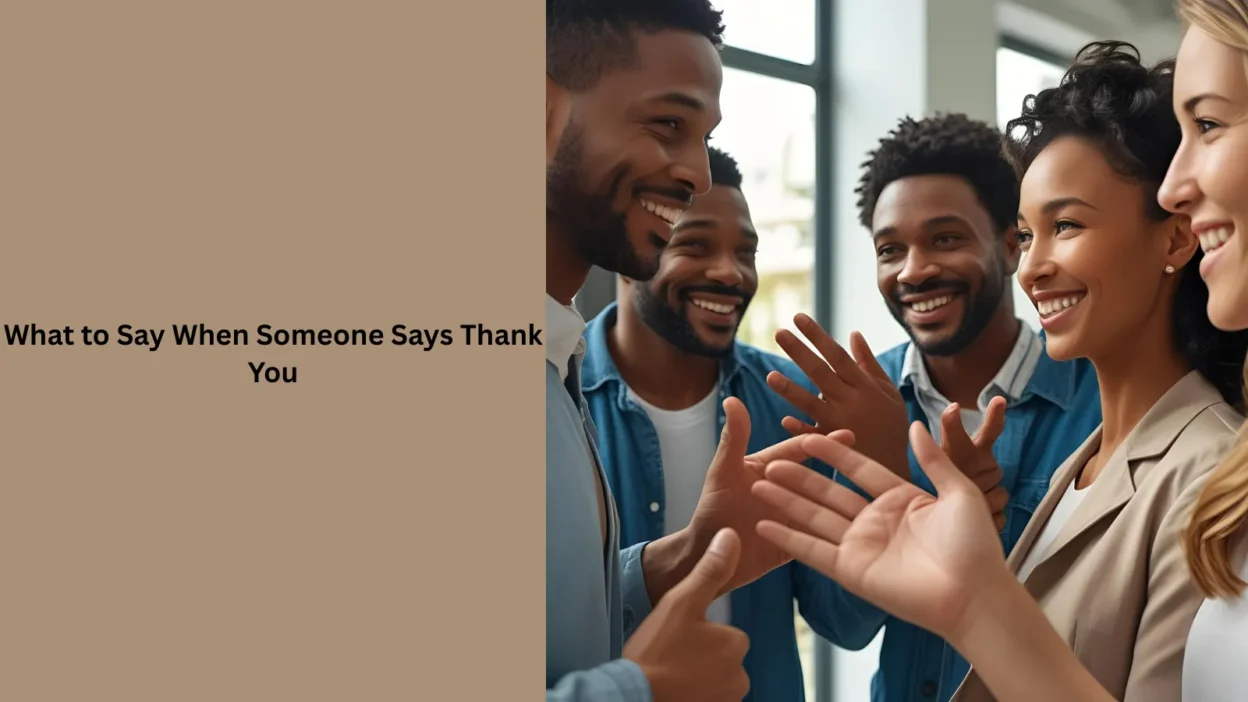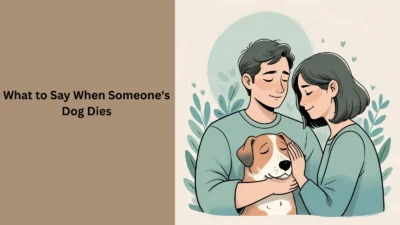Knowing what to say when someone says thank you can leave a lasting impression and strengthen relationships. Whether you’re responding in a professional setting or a casual conversation, choosing the right words matters.
Mastering how to reply to appreciation helps you sound confident, polite, and thoughtful. From a simple “You’re welcome” to more meaningful or humorous responses, there are many ways to acknowledge gratitude.
In this guide, you’ll learn various ways to respond appropriately in different situations. Whether you’re texting, emailing, or speaking in person, we’ve got you covered.
Let’s explore the best ways to respond with grace and authenticity.
Why Your Response Matters
When someone says “thank you,” they’re showing gratitude. Your reply isn’t just about being polite—it’s about building connection.
Why it matters:
- Shows emotional intelligence
- Builds stronger relationships
- Leaves a positive impression
Real-life example:
If a coworker thanks you for helping with a project, saying “No problem” might sound too casual. Instead, “I’m glad I could help” feels warm and appreciative.
Try saying:
- “You’re very welcome.”
- “It was my pleasure.”
- “Anytime—happy to help!”
Avoid saying:
- “No worries” (can feel dismissive)
- “Yep” (too short and informal)
Casual and Friendly Responses
In relaxed settings, your reply can be laid-back but still thoughtful.
Use in daily chats:
Whether it’s a friend, barista, or someone holding the door for you, keep it light and kind.
Try these casual replies:
- “No problem at all!”
- “Of course!”
- “Anytime!”
Example:
Friend: “Thanks for grabbing me lunch!”
You: “No problem! I know you had a busy day.”
Avoid saying:
- “Whatever” (rude or sarcastic)
- Silence (seems careless)
💡 Tip: Match the person’s tone. If they’re being warm, reply with warmth too.
Professional and Polite Responses
In work or formal situations, being respectful and gracious is key.
Try saying:
- “You’re welcome. I’m glad I could assist.”
- “It’s my pleasure to support you.”
- “I appreciate your kind words.”
Example:
Boss: “Thanks for getting the report in early.”
You: “You’re welcome. I’m happy to support the team.”
Avoid:
- “No big deal” (undermines your effort)
- “Sure” (too bland or casual)
Why it works:
Professional settings call for polished replies that still sound sincere. It shows maturity and respect.
Heartfelt and Emotional Responses
Sometimes, someone’s “thank you” is filled with deep emotion. Don’t brush it off—match their sincerity.
Say something meaningful like:
- “It means a lot to hear that.”
- “I’m really glad I could be there for you.”
- “That truly makes my day.”
Example:
Loved one: “Thank you for everything you’ve done for me.”
You: “You don’t have to thank me—I care about you.”
Avoid:
- “No worries” or “Don’t mention it” (can feel dismissive in deep moments)
💛 A thoughtful reply can deepen your bond and show that you value their feelings.
Humble Yet Confident Replies
Responding humbly shows kindness. But confidence reminds others of your strength or effort.
Say:
- “Thanks, I put a lot of effort into it.”
- “You’re welcome—I’m really proud of how it turned out.”
- “I’m glad it helped. That’s what I’m here for.”
Example:
Colleague: “Thank you for leading the team so well!”
You: “Thank you! I worked hard on it, and I’m glad it showed.”
This kind of reply strikes a balance between modesty and confidence.
Avoid:
- Downplaying your effort entirely
- “It was nothing” (when it was something)
Creative or Fun Responses
In casual moments, a little humor or creativity can make your reply memorable.
Say something fun like:
- “Tipping is appreciated!” 😄
- “Thank YOU for noticing!”
- “You got it, superstar!”
Example:
Friend: “Thanks for covering for me today.”
You: “No worries—I accept payment in snacks!”
Only use these when you know the person well and the mood allows.
Avoid:
- Overdoing jokes in serious settings
- Using sarcasm that may be misunderstood
Final Thoughts
Knowing what to say when someone says thank you helps you connect better with others—whether you’re at work, with friends, or in emotional moments.
You don’t need a script. Just choose words that match the moment and reflect how you want to show up in the conversation.
With these examples and tips, you’ll never be stuck wondering what to say again.




